6. The 400 Blows – Francois Truffaut
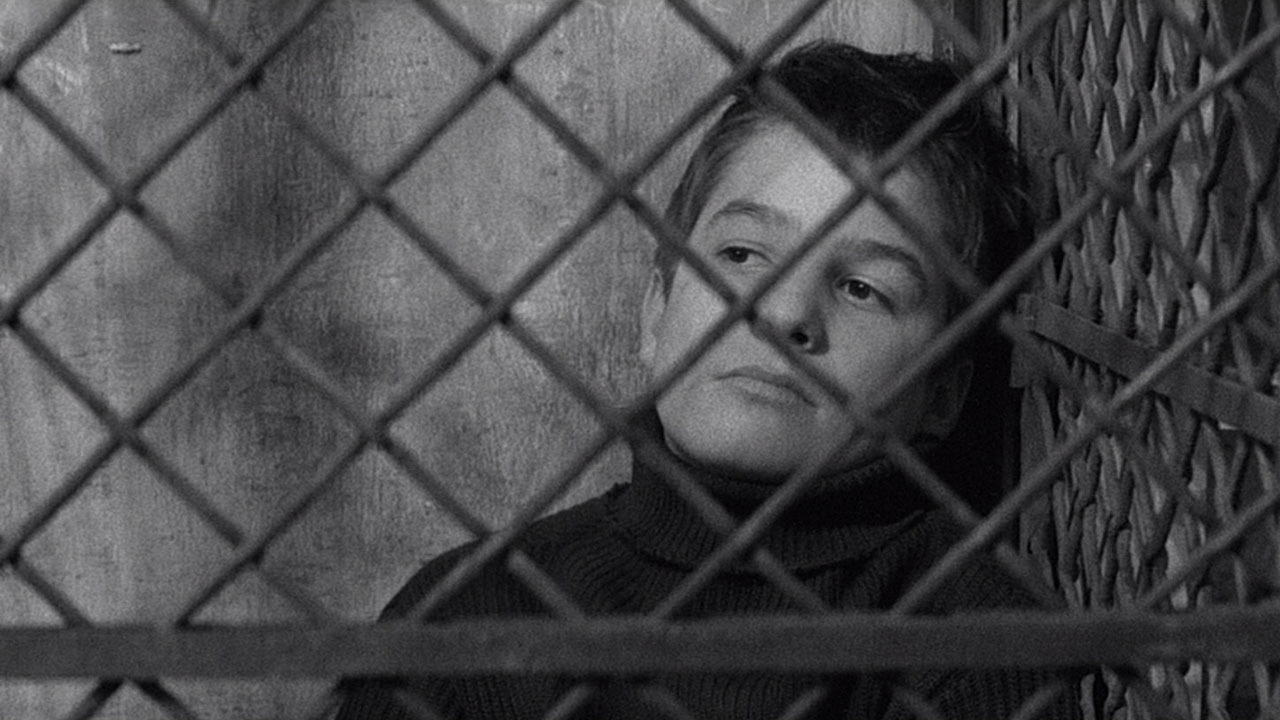
Riding the wave of the New Wave, from Czechoslovakia we go to France. The new winds that blew across the world in the 60s were not just about political reform, they were about reforming every aspect of life as it was known. The conflict between parents, authority figures, government and the young, new, free-spirited adolescent children is really shown in The 400 blows.
Truffaut shows us that not only is the conflict between an old and new generation something to be kept at home, it’s a problem that effects us all, because we are not separated from the happenings of each situation.
The young person not only confronts the powers that are raised in front of him, but he himself is searching for some higher meaning that he can not find in these institutions, so he can replace them. Is the social pressure to great, and are authorities too powerful to overcome at a certain point? Or can the ideas who are blowing as a fresh spring wind win in the battle for the soul of the generation?
Truffaut made the film because he thought that he can. It was through his expression that everything was possible, and nothing was to be left not confronted.
7. Breathless – Jean-Luc Godard
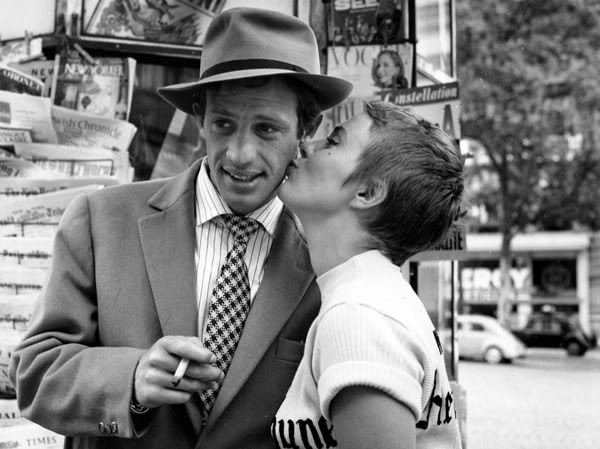
Right next to Truffaut is his colleague from the New Wave, Godard. The New Wave really gives meaning to the term Slice of Life. Movies have never felt as real and natural as they did during this time. This made the movies more personal and relatable to the viewer. The characters are us, clueless and filled with problems and sufferings, with things we can not overcome, and dealing with each temptation that comes our way in the most human of ways – with error.
The New Wave does not bring a big moral message, it just records life as realistically as possible and it’s more experiential than it is intellectual. There is a reason why these filmmakers were young, it’s because the youth after such a long period of time finally had an opening to have its say, and not only did it said it, it was a real bang that was heard through out the world.
In the age of existentialism , the French New Wave was the logical inspiration for the post World War 2 state of the globe. Such is the case in Breathless, the world now is bigger than we thought, we are all inspired by differing cultures, yet something seems a miss, the little things that we yearn for do not seem to be in order, but it total disorder.
8. Jeanne Dielman, 23 Commerce Quay, 1080 Brussels – Chantal Akerman
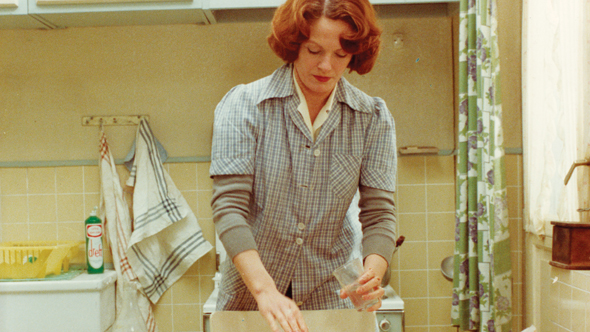
Along with the philosophical, political and artistic implications that came in the 60s to filmmaking in the West, came feminism as well. In the struggles of the age, the place of women in a society was not overlooked by film.
Called the first masterpiece of the feminine in the history of the cinema, Jeanne Dielman also dives into the most personal of spaces that a character can have, its home. A home filled with repressed emotions and a home where meaning has clearly been sucked out. The repetitiveness, mundane and absurd all collide into the life of Jeanne, a single mother who has all of the weight of the world on her shoulders.
Coping with the situation is what brings Jeanne to face dramatic events that will disrupt the day to day routines, even her prostitution, which seems to perfectly blend into the bleakness of the everyday existence.
It’s amazing how Akerman from such a young perspective intercepted all these problems that are not only personally, but speak to a whole range of women even to this day.
9. Sex, Lies and Videotape – Steven Soderbergh
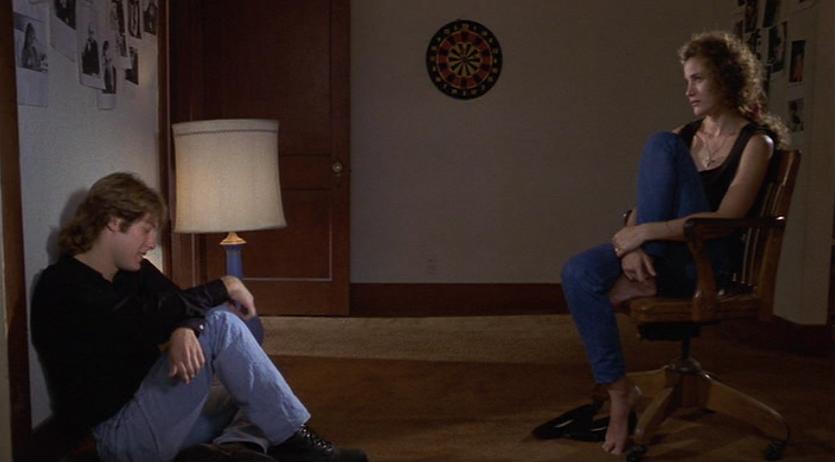
Sex seems to be very present in this list. No wonder, it seems that the young energy all the directors bring to the screen is always connected to these desires that seem to be troubling them. The interesting part of it is that they do not glorify sex, but instead look at it with caution, as a basis for a lot of tragic situations. Sex, Lies and Videotape is such a tale where power and sex overlap, the two most basic things that stir up conflict in drama.
The level of maturity that these issues are treated speaks that filmmakers are essentially gifted scholars of the human soul, and know what to present and how to present it. Soderbergh seems to be the one that got this and brought it really early into his career.
Another character driven movie that tells us how uncertain we are in all of our relationships that are never based on a solid ground, and are open to outside harm so easily.
10. Paths of Glory – Stanley Kubrick
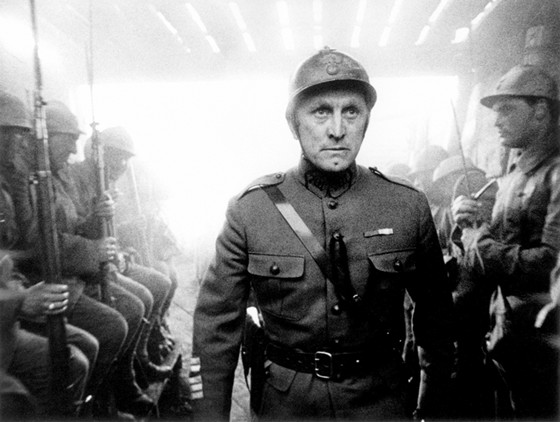
We end the list with the master of all masters, Kubrick. It might not seem a surprise that like the rest on this list he also started off early. Kubrick treats issues that concern the people who are not power through the lens of power itself.
A young director talking about issues like war was certainly not common in the 50s. Kubrick started his career with this film that has never been listed as among his best, but it’s a film that really gives insight into Kubrick’s other works and puts them into perspective.
Paths of Glory was a starting point for Kubrick, it’s a film made following all good moviemaking textbooks, the reason it seems that it’s overlooked when we are concerned with Kubrick is that his other work always seems to top the last one, so in such a scenario the first one would be the one that is almost never even mentioned.
However Paths of Glory fits in perfectly with all the issues Kubrick wanted to bring light to. War was a big theme in the West after WW2 and this film is among many that deal with the issue in a very personalized style, a true Kubrick classic.